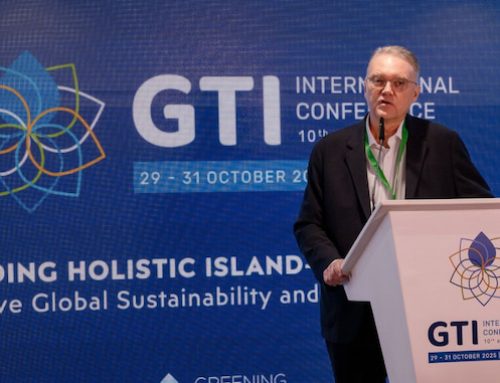
The study was designed to help address a key challenge shared by many in the hospitality sector: how to communicate effectively about sustainability.
The report focuses on four key strategies:
Highlight sustainability practices, including for less sustainable amenities, and show how guests can easily contribute
The research reveals the need for clear, specific communication around sustainable practices, avoiding vague terms that have been proven to lead to skepticism. Showcasing credible, practical actions, such as energy conservation and waste reduction, also builds trust and inspires sustainable choices. Evidence-based data from trusted sources, along with actionable steps, helps travelers to make informed decisions and feel empowered to contribute positively during their stay.
Balance appeal to pleasure and comfort for optimal results
This study found that sustainability can sometimes be perceived as less enjoyable or even restrictive. To counter this, the report encourages hospitality providers to frame sustainability in terms of pleasure and comfort. For instance, messaging focused on comfort led to a 145% increase in guest satisfaction. Highlighting activities such as scenic train rides or local culinary experiences that align with responsible practices reassures guests they can enjoy their stay without compromise.
Empower guests, don’t constrain or dictate to them
Research shows that guests prefer empowering, informative sustainability messages. For example, 55% felt skeptical about directives like “limit your water use,” while 70% felt that empowering messages made the hotel seem more responsible. Hospitality providers should encourage guests to make informed choices by sharing resources like local transit information. This guidance fosters a sense of responsibility and helps guests align their choices with their values.
Help guests act as responsibly as they do at home
Travelers value maintaining sustainable habits while traveling. As such, hospitality providers should avoid limiting their sense of agency. Messaging that evokes feelings of “home” fosters trust, warmth, and familiarity, making responsible actions feel natural. Such messaging reduced skepticism by over half and doubled perceptions of the hotel’s responsibility. This enhances guest satisfaction, helps them feel more connected, and encourages repeat visits by aligning with their values.
Download the report, which details the findings of exclusive research from a partnership between Booking.com, the University of Surrey, and Accor, here.
Read the original article here: https://group.accor.com/en/Actualites/2025/02/engaging-travellers-to-embrace-sustainable-behaviours



